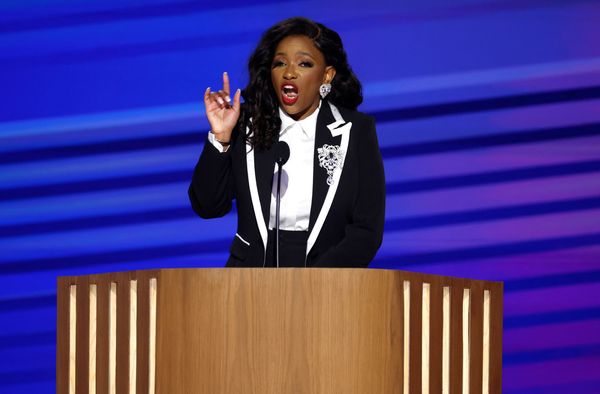I worked in television production for more than 25 years. In that time, toxic behaviour wasn’t the exception – it was the rule. Shouting in edit suites, endless working hours, bullying dressed up as “banter,” mental health treated as weakness: this was the price of entry. Everyone knew it, everyone felt it and everyone told themselves this was simply how TV worked.
Today the language has changed. We talk about “wellbeing” “seeing the whole person” and “bringing your whole self to work”. On paper, there are policies and pledges. But for too many, the reality hasn’t shifted. The mask slips whenever a celebrity bully is exposed, and for a brief moment the industry wrings its hands. The sad truth is this isn’t about a few bad apples. The rot is systemic.
I now lead the Film and TV Charity, which supports the physical, financial and mental health of people working in the screen industries. Every two years, we publish the Looking Glass Survey – the largest study of its kind into wellbeing in film, TV and cinema. Our 2024 results, which include the responses of over 4,300 workers, are damning.
Some 64% are considering leaving the industry because of mental health concerns and 32% have already taken steps to do so. Most shockingly, 30% have thought about taking their own life in the past year
Behind those statistics are people producing the programmes and films we all love. People under such pressure that despair has become part of the job.
As one of our anti-bullying advice workers put it: “There are still way too many freelancers working without contracts, who never receive a bullying and harassment policy and who have no idea how to share concerns about the unprofessional behaviour they experience. The fear of being let go or not being re-hired is pervasive.”
Women in particular describe a culture where sexual misconduct is tolerated, even rewarded. One colleague recalled: “I received unwanted messages from a senior colleague, who also harassed other young women. Evidence was collected, but nothing ever came of it. He went on to bigger success at a major streaming company.” Another said: “While working in PR, one of the channel’s biggest presenters rubbed against me in a revolving door, joking we needed to get closer. I didn’t feel I could complain.”
The damage is not only psychological but social. Some 30% of workers say they often feel lonely, almost four times the national average. Our research with the Centre for Loneliness Studies at Sheffield Hallam University shows the link: insecure jobs, long or erratic hours and a culture that isolates people don’t just make you feel alone – they actively corrode mental health.
The stakes could not be higher. As our head of client services told me: “I’ve spoken to people who are so overwhelmed, so ground down, that they tell me they’re not sure if they want to go on living. That’s how serious this is.”
The personal toll is devastating. The economic cost is staggering. Deloitte and DCMS data suggest poor mental health may be costing the industry as much as £400m a year. Loneliness is likely a major driver of that loss.
And yet, there is hope. As our Mentally Healthy Productions engagement producer told me: “I work with teams who know exactly how toxic their last production was. They’ve seen the damage up close. And now they’re determined to make their next one different – with boundaries, with care, with wellbeing built in from day one.”
It’s also important to dismiss the idea that this is simply about “woke snowflakes.” As a senior colleague at the Charity said: “We’re being approached by people of all ages, across every part of production – camera operators, editors, runners, senior producers. This culture is harming everyone.”
And it stretches beyond production itself. One former cinema worker told us: “When I asked for one night off during a week of late events, I was told I couldn’t have a life outside work. When I raised it with HR – in what I thought was confidence – my managers found out and ended my contract, saying it wasn’t working out.”
If this sounds like an industry in crisis, that’s because it is. Yet the survey also shows signs that targeted interventions – safeguarding, healthier working practices, mental health initiatives – are beginning to make a difference. Culture can change.
Encouragingly, some of the most powerful players are waking up. Broadcasters, major production companies and global streamers are engaging with the Film and TV Charity and beginning to put wellbeing on the agenda. But let’s not kid ourselves. Culture change is slow. Real reform takes more than a few initiatives or awareness campaigns. It requires everyone – producers, commissioners, executives, freelancers – to rethink what has been normalised for decades.
Why does it matter? Because the UK’s creative industries are not just culturally significant, they are economically vital.
Film and TV are jewels in Britain’s crown, admired worldwide and fuelling growth at home. If we allow toxic working cultures to drive out talent, we are not just failing individuals. We are putting one of the country’s great economic engines at risk.
The truth is stark: television is making people ill. It doesn’t have to be this way. The choice is simple – keep burning through people until the industry collapses under its own weight or start treating culture as seriously as content. If we want creativity to flourish, the people who make it happen must be able to flourish too.
Marcus Ryder is CEO of the Film and TV Charity. If you work in film, TV, or cinema and need support, reach out to the Film and TV Charity through its Support Line on 0800 054 0000, or visit its website www.filmtvcharity.org.uk







